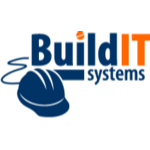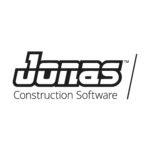TechnologyCounter provides genuine, unbiased real user reviews to help buyers make informed decisions. We may earn a referral fee when you purchase through our links, at no extra cost to you.
List of 15 Best Construction Scheduling Software
Showing 1 - 15 of 21 productsFieldproxy is a software designed to optimize and simplify field operations for businesses. With its user-friendly interface features, Fieldproxy revolutionizes the way businesses manage their field tasks, resulting in increased efficiency and produc...Read Fieldproxy Reviews
Clear Estimates is an innovative software designed to simplify and streamline the process of creating accurate project estimates for construction professionals. With user-friendly features and customizable options, Clear Estimates is the go-to soluti...Read Clear Estimates Reviews
TeamGantt is a project management tool designed to streamline team collaborations and increase productivity. With its intuitive interface and robust features, TeamGantt helps teams of all sizes effectively plan, manage, and track their projects from...Read TeamGantt Reviews
Procore Construction is a and innovative software that has revolutionized the construction industry. With its user-friendly interface features, Procore has become a go-to solution for project management, collaboration, and real-time communication. Th...Read Procore Construction Reviews
ESUB is a software designed to streamline project management for construction companies. With simplified document tracking, efficient timekeeping, and seamless communication, ESUB enables construction teams to collaborate effectively and complete pro...Read ESUB Reviews
SAM (Superintendents Automated Manager), a revolutionary software designed to streamline the operations of educational institutions. With its advanced features and user-friendly interface, SAM empowers school superintendents to efficiently manage tas...Read SAM - Superintendent's Automated Manager Reviews
Buildertrend is a tool for construction professionals, designed to simplify project management and streamline workflows. With its user-friendly interface and robust features, Buildertrend empowers builders, contractors, and remodelers to efficiently...Read Buildertrend Reviews
CoConstruct is a project management software that streamlines construction processes for businesses of all sizes. With advanced features and a user-friendly interface, CoConstruct allows teams to collaborate, track progress, and manage budgets with e...Read CoConstruct Reviews
BuildIT Systems is a software designed to streamline and enhance project management for businesses of all sizes. With its intuitive interface and powerful features, BuildIT Systems is transforming the way organizations track, collaborate, and complet...Read BuildIT Systems Reviews
Jonas Construction is a leading software solution for the construction industry. Our versatile and user-friendly platform has revolutionized the way contractors manage projects, finances, and resources. With Jonas Construction, you can streamline you...Read Jonas Construction Reviews
Visual Planning is a software that streamlines project management, resource allocation, and scheduling. With its powerful visualization tools and user-friendly interface, Visual Planning empowers teams to efficiently plan and execute tasks, leading t...Read Visual Planning Reviews
Smart Service is a software designed to streamline and elevate your business operations. With its intelligent features and user-friendly interface, Smart Service is setting a new standard in efficiency and productivity. Say goodbye to tedious tasks a...Read Smart Service Reviews
TACTIVE Construction is a software solution designed specifically for the construction industry. With its user-friendly interface features, TACTIVE streamlines project management, communication, and collaboration for construction teams of all sizes...Read TACTIVE Construction Reviews
SmartDraw is a and versatile software that simplifies the process of creating professional diagrams, charts, and presentations. With its user-friendly interface and robust features, SmartDraw allows individuals and businesses to easily visualize comp...Read SmartDraw Reviews
Fieldwire is a construction management software designed to streamline communication and collaboration in the field. With its user-friendly interface and mobile capabilities, Fieldwire helps teams stay organized and productive by facilitating real-ti...Read Fieldwire Reviews
- What Is Construction Scheduling Software?
- Top Reasons Why Businesses Need Construction Scheduling Software?
- What Are the Top Key Features of Construction Scheduling Software?
- What Are the Top Benefits of Construction Scheduling Software?
- What Are the Steps to Choose the Right Construction Scheduling Software?
- What Are the Types of Construction Scheduling Software for Different Industries?
- What Are the Technology Trends for Best Construction Scheduling Software?
- What Are the Deployment Options for Construction Scheduling Software?
What Is Construction Scheduling Software?
Construction scheduling software refers to a category of computer applications utilized for the purpose of effectively overseeing and coordinating the planning and execution phases of constructing various architectural edifices.
Top construction scheduling software facilitates the strategic organization of activities, sequencing of events, and allocation of resources necessary for the successful execution of a building project. The aforementioned technology is a highly effective instrument that enables construction experts to efficiently and expeditiously manage various operations.
The utilization of construction scheduling tools facilitates the monitoring and assessment of project advancement in accordance with the predetermined timetable.
Additionally, this practice aids the project team in effectively scheduling their operations and enhances the project's transparency regarding its advancement.
The software application will provide users with an estimate of the anticipated duration for each activity, as well as a comprehensive display of accomplished tasks and those that remain outstanding. Additionally, the utilization of visual representations in task management aids in the prevention of expensive errors or delays. This is achieved by offering a clear depiction of the intended tasks and their respective timelines.
Additionally, the best construction scheduling software provides functionality that allows for the comparison of the current performance with the predetermined schedule, enabling an assessment of the project's progress and identification of necessary actions.
In general, the utilization of construction scheduling software is an essential resource that yields significant advantages for both contractors and customers, as it facilitates the timely and cost-effective completion of projects.
Top Reasons Why Businesses Need Construction Scheduling Software?
1) Accurate scheduling and forecasting: Top construction scheduling software provides precise scheduling and forecasting functionalities. This facilitates organizations in enhancing their ability to forecast forthcoming expenses, personnel requirements, and other variables that will influence a project.
2) Improved communication: The utilization of the best construction scheduling software facilitates enhanced communication among team members, hence promoting increased efficiency and timely project completion.
3) Monitoring of project progress: Construction software enables project supervisors to effectively monitor the advancement of construction operations.
4) Reduced costs and increased efficiency: Building scheduling software can be utilized by businesses to optimize productivity and minimize superfluous expenses associated with a building project.
5) Improved transparency of operations: Construction software enhances operational visibility within the construction industry, facilitating more effective project management across all stages.
6) Automated budget tracking: The utilization of cloud based construction scheduling software enables the automated monitoring of project budgeting and expenses.
7) Increased employee productivity: Construction software is a valuable tool that enhances staff productivity and minimizes the amount of time dedicated to routine chores.
8) Document management: The utilization of construction scheduling tools facilitates the efficient arrangement and archival of various documents, including contracts and invoices, hence streamlining project management processes.
9) Better risk management: Construction software plays a crucial role in enhancing the identification and management of project hazards, hence improving overall project effectiveness.
10) Improved scheduling accuracy: Top construction scheduling software is a valuable tool that aids firms in enhancing resource management and refining estimations of project timelines.
11) Integration with project operations: The integration of construction scheduling software with project operations facilitates enhanced project management capabilities.
12) Quality assurance: Cloud based construction scheduling software plays a pivotal role in facilitating organizations to uphold project quality and sustain consumer happiness.
13) Enhanced customer experience: The utilization of construction software has the potential to enhance the customer experience by effectively ensuring the timely delivery of projects.
14) Supplier reduction: The utilization of construction scheduling software enables firms to enhance their supplier management practices, hence mitigating the necessity for various suppliers and yielding cost reductions.
15) Automated reports: The utilization of the best construction scheduling software enables the expeditious and precise generation of reports, including time-sheets. This facilitates the task of firms in analyzing progress and outcomes.
What Are the Top Key Features of Construction Scheduling Software?
1. Task Dependency Management: Construction scheduling software allows you to determine the sequence of tasks in the project timeline based on specific task dependencies.
2. Resource Planning: The best construction scheduling software automatically optimizes the use of resources so that users can maximize results with minimum effort.
3. Automated Progress Tracking: Cloud based construction scheduling software allows users to track progress and make adjustments in the project timeline as needed.
4. Budget Planning: Construction scheduling tools enables users to estimate the cost of projects and set up budgets in advance.
5. Milestone Management: Users can establish milestones for the various phases of the project and monitor performance against them.
6. Visual Presentations: Top construction scheduling software can generate visual presentations of the project timeline that make it easier to understand and plan projects.
7. Collaboration Tools: Construction scheduling tools help teams to share information and collaborate in real-time to make project transitions easier.
8. Third-Party Integrations: By integrating with third-party software and services, construction scheduling software can manage tasks and data across multiple systems and/or cloud environments.
9. Reporting: Cloud based construction scheduling software can generate reports that give users detailed insights into project performance over time.
What Are the Top Benefits of Construction Scheduling Software?
1. Improved collaboration: The utilization of construction scheduling software facilitates enhanced coordination among all project stakeholders. The software's interactive features enable rapid access, modification, and sharing of project tasks and schedules among all relevant stakeholders. This enables expedited communication and mitigates any potential delays arising from administrative documentation.
2. Real-time updates: The software enables users to be informed in real-time regarding the ongoing developments of a project. The ability to promptly observe activities, tasks, and any modifications is readily apparent. This enables individuals to promptly handle any problems or unanticipated delays that may arise on the premises.
3. Track costs: Construction scheduling tools enable users to maintain a comprehensive and precise documentation of all expenditures linked to a certain project. This enables the user to enhance resource management, monitor labor expenditures, and reduce overhead costs.
4. Shorter completion time: Top construction scheduling software enables the proper tracking and management of project operations, facilitating the timely completion of projects. This enhances operational effectiveness and guarantees adherence to financial constraints, hence facilitating timely project completion.
5. Reduce risk of errors: The implementation of automated scheduling systems contributes to the maintenance of task and deadline accuracy and currency. This practice mitigates the potential for errors and inaccuracies, hence decreasing the likelihood of project setbacks.
6. Visual representation: Moreover, the utilization of construction scheduling software provides a graphical depiction of the project's chronological sequence, facilitating enhanced understanding of the project's magnitude and enabling stakeholders to make more informed and judicious choices. Early identification of possible problems is beneficial since it allows for the avoidance of expensive re-work.
What Are the Steps to Choose the Right Construction Scheduling Software?
1. Assess Your Needs – Prior to evaluating the assortment of construction scheduling software options, it is imperative to conduct a thorough assessment of your existing project scheduling requirements. Consider the many attributes and functionalities that are essential for your operational processes, and subsequently establish a hierarchy of these requirements in order to identify the most suitable solution for your team.
2. Research Different Construction Scheduling Software Solutions – There exists variability among project scheduling solutions. It is crucial to evaluate the characteristics and advantages of each solution in order to ascertain the most suitable option for fulfilling one's requirements. It is advisable to peruse customer reviews in order to gain insights into the functionality of the software as experienced by actual users in authentic scenarios.
3. Take a Demo or a Trial of the Software – After conducting thorough research on various options, the subsequent recommended course of action would be to avail oneself of complimentary trial periods offered by several potential solutions. This will enable the team to ascertain the most optimal solution for their specific needs.
This affords the opportunity to gain insight into the diverse array of capabilities provided and observe their functionality within an authentic setting.
4. Consider Price and Ease of Setup – The objective is to choose the solution that provides optimal cost efficiency while also ensuring a streamlined setup procedure. It is important to consider the expenses related to the acquisition of accompanying hardware.
5. Ask Questions – Inquire the potential software vendor regarding any remaining inquiries you may own. This can serve as a means to familiarize oneself with the individuals with whom one would collaborate and assess their level of attentiveness.
6. Make a Decision – Equipped with comprehensive knowledge derived from diligent research, demonstrations, and inquiries, individuals are now prepared to select a construction scheduling software system that aligns with their operational requirements.
Select an option that aligns with your specific requirements, is within your financial constraints, and offers the necessary attributes and capabilities for achieving desired outcomes.
What Are the Types of Construction Scheduling Software for Different Industries?
1. Residential Construction Scheduling Software: This software application is specifically tailored for builders of single or multi-family homes, providing support in several aspects such as project planning, scheduling, cost tracking, and labor tracking. The software is specifically designed for residential projects and has the capability to generate standardized reports that aid in budgeting and expense tracking.
2. Commercial Construction Scheduling Software: The program is specifically designed to cater to the needs of larger commercial projects that entail a greater number of individuals and different partners. The system encompasses the functionalities of real-time tracking, interactive visualizations of activities, resource management, cost analysis, and collaboration capabilities.
3. Industrial Construction Scheduling Software: The program is specifically designed to cater to extensive industrial projects, encompassing many functionalities such as event organization, resource distribution, construction synchronization, financial oversight, and safety administration.
4. Infrastructure Construction Scheduling Software: The software has been specifically developed to cater to construction projects encompassing various infrastructure elements such as highways, bridges, tunnels, and related structures. The software encompasses several functionalities, such as the ability to track project milestones, monitor costs, manage risks, and automate scheduling.
What Are the Technology Trends for Best Construction Scheduling Software?
The technology trends for the best construction scheduling software includes:
1. Mobile Integration: The integration of mobile technologies enables the seamless incorporation of field data in real-time, hence facilitating access to such data from any location with internet connectivity. This facilitates the ability of teams to monitor the advancement of projects, evaluate schedules, and exchange information, all through a single device.
Additionally, this practice promotes enhanced communication and collaboration among teams inside the workplace.
2. Cloud-Based Platforms: Cloud based construction scheduling software enables users to view and manipulate scheduling data remotely, hence providing enhanced flexibility in managing construction projects. The utilization of cloud-based storage for project information and management tools facilitates universal access to shared data and resources across project stakeholders, irrespective of their geographical locations.
3. Automation: Automated processes are implemented to assure the timely completion of every activity, while adhering to the prescribed job requirements. Automated processes facilitate process optimization and reduce errors resulting from manual inputs.
4. Predictive Analytics: The utilization of predictive analytics capabilities facilitates the identification of prospective issues and obstacles prior to their manifestation, hence mitigating their impact on project or team objectives. Additionally, this technology aids in the prediction of labor requirements and resource timetables, resulting in enhanced optimization and cost reduction.
5. Integration with Third-Party Tools: The inclusion of third-party applications and tools within the scheduling software enhances the scope of scheduling functionalities and facilitates improved data visibility. This practice of saving time and enhancing project accuracy can be beneficial.
What Are the Deployment Options for Construction Scheduling Software?
The available deployment choices for construction scheduling software often differ among solution providers, although they frequently encompass on-premise, cloud, and hybrid installations.
The on-premise model involves the storage and maintenance of all software and data on servers owned by the customer. Cloud based construction scheduling software deployments involve the storage of data and software on servers owned by a service provider, enabling remote access through either a web browser or a mobile application.
Hybrid deployments encompass the integration of both on-premise and cloud capabilities within an operational framework. All the aforementioned deployment alternatives provide remote access to scheduling software, contingent upon the application being optimized for mobile devices.















